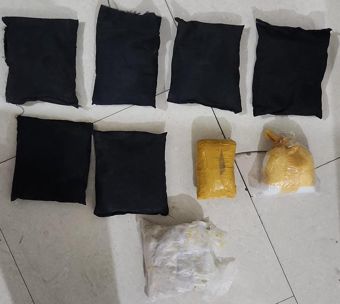Ottawa, February 25
Photographers, poachers and eco-tour operators are in the crosshairs of a Canadian conservationist who warns that tracking tags are being hacked and misused to harass and hunt endangered animals.
Steven Cooke, a biology professor at Carleton University in Ottawa, says that the very tools used by scientists to study and protect animals and fish are being hijacked to do just the opposite.
Cooke, the Canada research chair of environmental science and biology, is the lead author of a paper published this week in the journal Conservation Biology.
The research paper cites the example of anglers in the US state of Minnesota who petitioned for access to data on northern pike movements, arguing that it should be publicly available because the research was publicly funded.
Australian authorities have used tags to locate and cull sharks while in India, attempts were made to hack the global positioning system (GPS) collars on endangered Bengal tigers in a case of “cyber poaching.”
Cooke said that it is a new phenomenon and there is no data available to quantify this “troubling and unanticipated” problem.
But he provides a broad range of anecdotal evidence in his scholarly article.
Scientists are scheduled to meet in June in Australia to discuss the problem as well as potential fixes.
In the meantime, Cooke is calling for encryption and strict rules to secure data and limit the use of telemetry tools for non-research activities.
In an interview with AFP, Cooke noted that natural history, ecology, conservation and resource management have all benefited from the use of electronic tagging technology.
But if left unchecked, abuses could not only cause harm to animals, it could significantly hamper research.
“Just think about all the weird ways that people might try to exploit this technology,” Cooke said.
The idea for this research came during a family vacation last summer to Banff National Park in Canada. It was then that he learned that the park authority had imposed a public ban on VHF radio receivers after photographers used telemetry to track tagged animals.
Canadian officials were concerned that the animals may be spooked, stressed or habituated to human interaction, which can alter their behavior and thus influence research findings, or lead to human-wildlife conflicts. — AFP



























